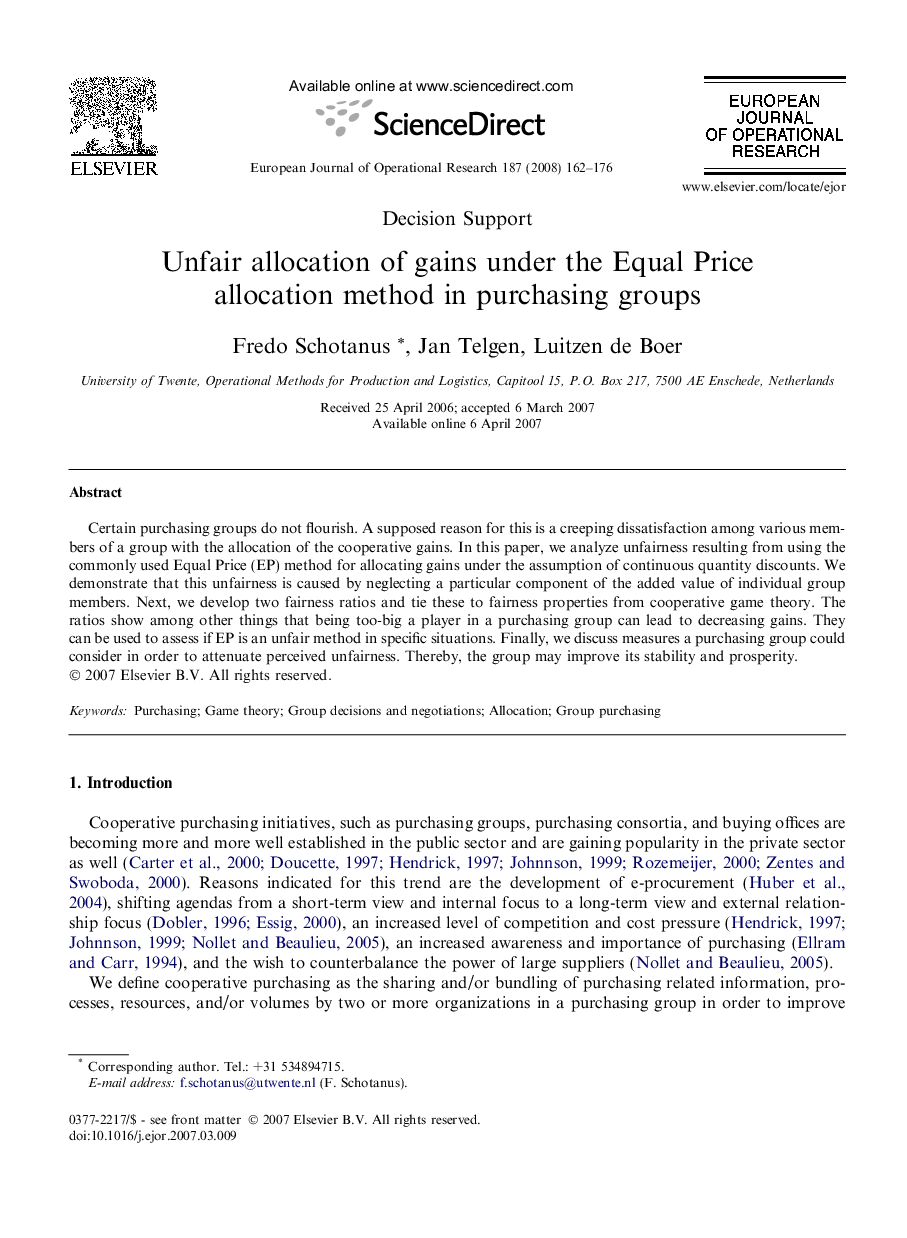| Article ID | Journal | Published Year | Pages | File Type |
|---|---|---|---|---|
| 478905 | European Journal of Operational Research | 2008 | 15 Pages |
Certain purchasing groups do not flourish. A supposed reason for this is a creeping dissatisfaction among various members of a group with the allocation of the cooperative gains. In this paper, we analyze unfairness resulting from using the commonly used Equal Price (EP) method for allocating gains under the assumption of continuous quantity discounts. We demonstrate that this unfairness is caused by neglecting a particular component of the added value of individual group members. Next, we develop two fairness ratios and tie these to fairness properties from cooperative game theory. The ratios show among other things that being too-big a player in a purchasing group can lead to decreasing gains. They can be used to assess if EP is an unfair method in specific situations. Finally, we discuss measures a purchasing group could consider in order to attenuate perceived unfairness. Thereby, the group may improve its stability and prosperity.
